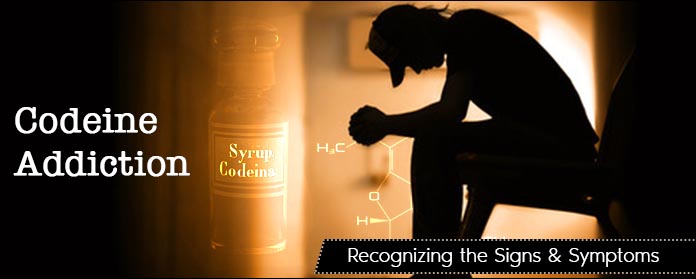What exactly is Phenibut and the sought after Phenibut High? Phenibut is an anti-anxiety medication that is also used to treat stress, post-traumatic stress disorder (PTSD), alcoholism, depression, and even irregular heartbeat in Latvia, Kazakhstan, Russia, and Ukraine.
In areas where it is prescribed, phenibut is known by the brand names Noofen, Fenibut, and Anvifen, along with others.
While it’s not medically approved for use in the United States, it is available online as a nootropic or a drug to enhance memory and cognitive function.
How Does Phenibut Work?
Phenibut acts by mimicking a chemical naturally found in your brain called gamma-aminobutyric acid (GABA), which calms the central nervous system.
Phenibut is a chemically modified version of GABA, with an extra phenyl ring. This ring allows the drug to cross the blood-brain barrier and bind to GABA receptors.
Once it’s bound to GABA receptors, it tones down neural sensitivity to lessen anxiety and overstimulation.
It also can attach to dopamine receptors, which are the mood-controlling neurotransmitters in your brain. In this way, it’s able to create a sense of pleasure, lift mood, and increase motivation.
Phenibut Dosage
Limited information is available in Russian-language papers regarding typical phenibut dosage.
Online sellers provide 200-500 mg tablets, with an average dose totaling 2.4 grams.
Phenibut Side Effects
Phenibut has not been studied enough for well-researched side effects to be noted, although studies show that tolerance to the drug develops through chronic use.
Anecdotal information gathered from online sites show that phenibut can cause the following:
- Drowsiness
- Pain and numbness
- Changes in sleep and dream patterns
- Hangover
In rare cases and at high dosages, people have experienced hallucinations, both auditory and visual.
Phenibut High and Withdrawal
Using phenibut to get high can be dangerous and withdrawal from phenibut can mimic benzodiazepine withdrawal.
The most common phenibut withdrawal symptoms include anxiety, insomnia, rapid heartbeat, and poor sleep, although other symptoms, like the ones listed below, are not uncommon.
Agitation
Agitation can appear for days or weeks after ending phenibut use, with users feeling like they can’t sit still. This can be alleviated through exercise and meditation.
Anxiety
One of the most common symptoms of phenibut withdrawal, anxiety may be extreme in those with an underlying disorder or who have taken increasingly large amounts of the drug.
Loss of Appetite
This side effect may be related to out-of-whack GABA and dopamine levels that occur after quitting phenibut.
A fast decline in this neurotransmitter may increase stress hormones and slow the metabolism of dopamine, both of which contribute to the suppression of appetite.
Brain Fog
Since phenibut is often used as a nootropic, that is, a drug that increases concentration, discontinuing it may cause a perceived impairment of cognitive skills.
Low Mood or Depression
Depression can stem from increased anxiety related to discontinuing the drug or from a lack of GABA or dopamine following cessation.
It may take weeks for this symptom to resolve.
Depersonalization
Stopping phenibut can make you feel unlike what you’ve come to think of as your “normal” self. This feeling often increases anxiety.
This state can be extremely unpleasant for phenibut users who had depression or anxiety prior to taking the drug.
Dizziness
When discontinued, phenibut de-agonizes GABA receptors, which, in some people, causes severe dizziness for two to four weeks after drug cessation.
Fatigue
Phenibut is a mood and performance booster. Stopping the drug often results in rebound fatigue and lethargy for several weeks.
Hallucinations
In rare cases, some people, particularly those with preexisting psychological disorders, a history of substance abuse, or who took extreme doses of the drug, may experience hallucinations.
Irregular Heart Rhythms
This is a rather common side effect of phenibut withdrawal, sometimes magnified or exacerbated by the accompanying anxiety common in withdrawal.
Insomnia
Another common side effect of phenibut withdrawal, insomnia may consist of the inability to stay asleep all night or to fall asleep in the first place, regardless of fatigue.
Irritability
Once phenibut is discontinued, the calm state it brings dissipates and users feel restless and irritable. This common side effect resolves over a period of several weeks.
Muscle tension
Since GABA helps to relax the muscles, stopping phenibut can have the opposite effect — a tensing of muscles that is sometimes accompanied by psychological tension and anxiety.
Nausea
Nausea can last one to two weeks after phenibut cessation, with some episodes harsh enough to affect appetite.
Primal Fear
The feeling of “primal fear” has been reported by a number of phenibut users during withdrawal.
This is a feeling of over-stimulation and sensitivity to changes in your environment. It can be accompanied by a preoccupation with anxiety and adrenaline surges.
Rapid Heartbeat
Like any central nervous system depressant, withdrawal from phenibut causes increased heart rate alongside other heart-centric side effects, such as palpitations or abnormal rhythms.
Restlessness
Since GABA declines rapidly with cessation of phenibut, restlessness, along with an increase in anxiety and arousal may occur.
Tremors
Tremors — the uncontrollable shaking of limbs — are a common phenibut withdrawal symptom.
Getting Help with Phenibut Withdrawal
If you’re experiencing symptoms of phenibut withdrawal, seek the assistance of a professional rehab center or doctor who is experienced in managing drug withdrawal.
With professional care, you can get the support and therapy you need to minimize symptoms while decreasing drug dependency.






